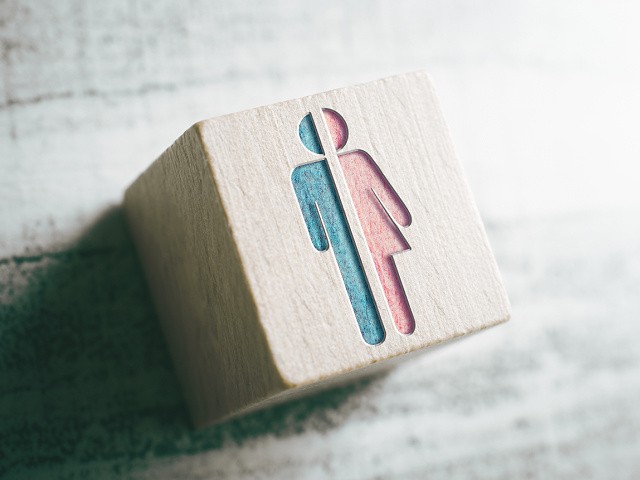Since the beginning of the Muslim holy month of Ramadan, Palestinian villages east of Nablus have been suffering from a water shortage amid soaring summer heat.
The Palestinian Water Authority’s inability to set up additional water infrastructure in the West Bank “has led to the old and limited pipes being unable to transfer all the water needed in the region,” said Israel Water Authority spokesman Uri Schor.
A senior Palestinian Water Authority official rejected the claim, saying that Tel Aviv is “misleading the public.”
Locals living in the West Bank blame the Israeli water company Mekorot for cutting water supplies, which the utility company has denied doing. Palestinians at the same time argue that quota for neighboring Jewish settlements located in the West Bank is much higher.
Israeli settlers receive 240 liters of water per capita per day, according to the Emergency Water, Sanitation and Hygiene group (EWASH), while the Palestinians in the Salfit region of the West Bank have access to around 73 liters, which is lower than World Health Organization’s recommended of 100 liters per day required for the basic needs of the populace.
Israel receives most of its water from the Mountain Aquifer and the Jordanian Basin. Under international law, these are international water resources shared by Israel and the Palestinian Authority (PA). The system of groundwater basins is the primary water source available for Palestinians in the West Bank.
While the Oslo Accords transferred responsibility to the PA for the supply of water to Palestinians, Israel de facto exerts dominance over the water sector in the occupied territories.
Under the agreements, Israel gets 80 percent of the water from the West Bank Mountain Aquifer, while the rest goes to the Palestinians. In addition, every new water-related project by Palestinian Water Authority requires Israel’s consent through the Joint Water Committee, where Israel has veto power over Palestinian water projects.
Enduring water shortages in three villages east of Nablus have seen the population without running water for more than two weeks.
People living in the West Bank rely on Israeli-hauled trucked water which costs over 10 times more than water from the grid. Furthermore, the drought is severely impacting the local economy, with factory production being halted, livestock dying and plant nurseries drying out.
Investigating the severity of the water shortage, Haaretz reached out to the key players involved in the water war. The publication discovered that Mekorot warned Palestinian Water Authority officials that water cuts will last throughout the entire summer season.
Haaretz sources in Israel admitted to the water shortage and acknowledged that the primary concern for Mekorot is to make sure that local reservoirs which are located in Israeli settlements have enough water to supply pressure to the grid.
Israel’s Water Authority said that Israelis are also suffering from the drought and blamed the Palestinians for refusing to improve their water distribution infrastructure.
“A localized water shortage has developed for Israelis and Palestinians alike in northern Samaria and it stems from the especially high consumption because of the region’s intense heat,” said Schor.
The official from the Palestinian Water Authority insists Israel is redirecting more water supplies to the Jewish settlements.
“The pipes do not need to be upgraded. USAID, for example, just finished the new pipeline in Deir Sha’ar to serve the population in Hebron and Bethlehem. Israel needs to increase the pumping rate from the Deir Sha’ar pumping station and more than half a million Palestinian would receive their equitable share,” the official told Haaretz.
He noted that Israel is holding water supply hostage after submitting a project to increase the size of the pipe serving Israeli settlements in the Tekoa area, which they want Palestinians to approve.
“Israel Water Authority is blackmailing the Palestinian Authority to approve the Israeli project in exchange for increasing the water from the Deir Sha’ar booster station,” the official stressed.
Water shortages in the West Bank have become an annual hot topic in the news since Israel occupied the territory in 1967. The water wars are seen by the locals as a “collective punishment” by Israel on Palestinians.
“There has been a raging water war that Israel has used and it uses it against larger collectives, against the population, as a form of collective punishment,” editor of the Palestine Chronicle, Ramzy Baroud, earlier told RT.
EWASH called Israel’s control over water supply “discriminatory” as the NGO voiced concern over the wellbeing of Palestinian locals.
“When discriminatory water distribution measures are implemented by Israel during spring and summer months, as water demand naturally increases and supply to settlements is systematically privileged over Palestinian areas in the West Bank by Israel – Palestinians find themselves facing health hazards, and their livelihoods are negatively affected,” EWASH said in a statement released this week.
Source Article from https://www.rt.com/news/347858-israel-palestinians-west-bank-water/?utm_source=rss&utm_medium=rss&utm_campaign=RSS
Related posts:
Views: 0
 RSS Feed
RSS Feed

















 June 23rd, 2016
June 23rd, 2016  Awake Goy
Awake Goy 





 Posted in
Posted in  Tags:
Tags: 
















